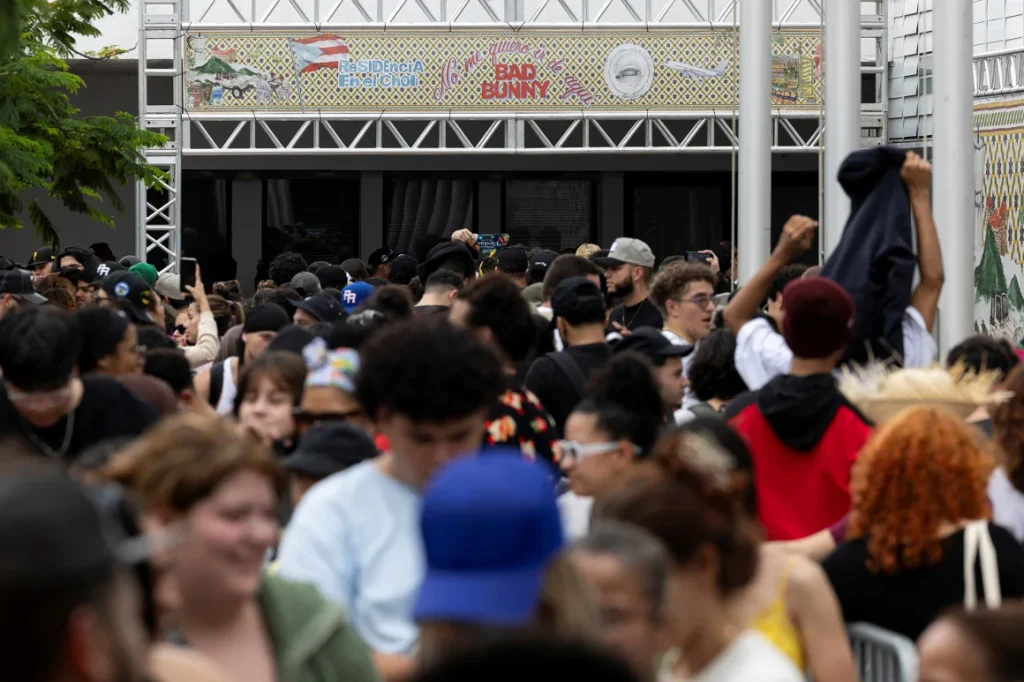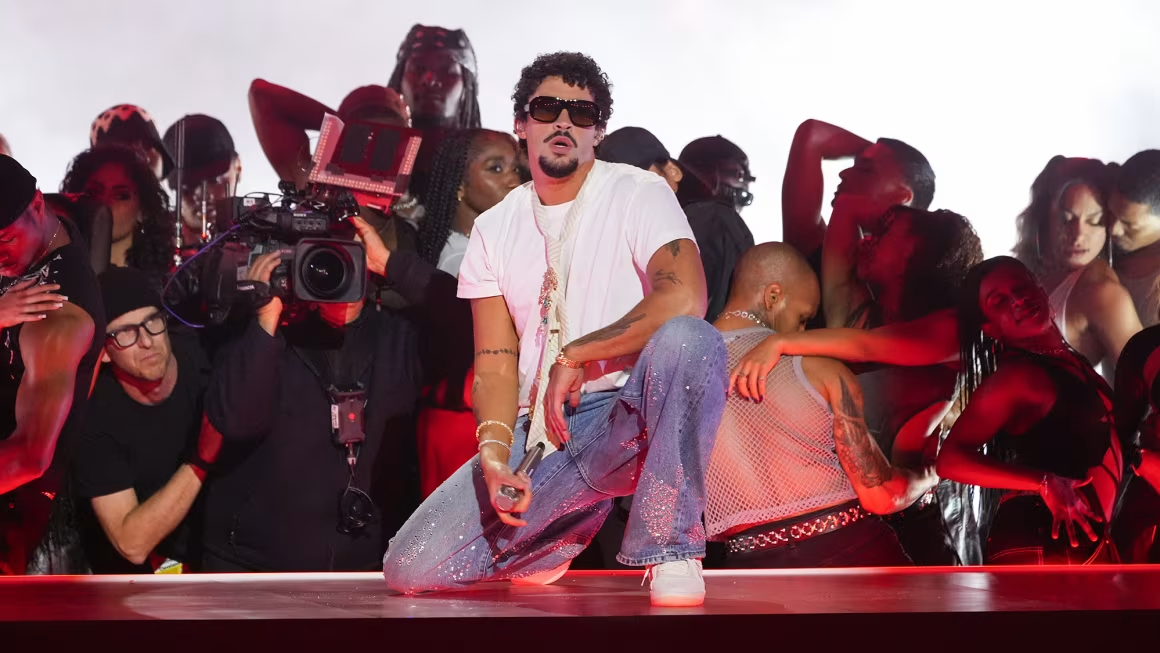A wave of excitement has swept across Puerto Rico as global music sensation Bad Bunny, born Benito Antonio Martinez Ocasio, commenced his highly anticipated 30-concert residency on Friday.
The island is experiencing “Bad Bunny mania,” with local businesses selling themed merchandise and food, and news stations dedicating extensive coverage to the event.
Fans see the residency as a powerful affirmation of Puerto Rico’s unique pride and resilience, set against a backdrop of economic instability, gentrification, and the enduring effects of colonialism.
The initial nine shows are exclusively for Puerto Rican residents, a move praised by historian Jorell Meléndez-Badillo as a direct message from Benito to his homeland.
The remaining concerts will welcome international fans, aiming to showcase the island’s rich culture to a global audience. All 30 performances at the 18,500-seat Coliseo de Puerto Rico are completely sold out.
A Symbol of Self-Reliance and Cultural Affirmation
Javier J. Hernández Acosta, Dean of the School of Arts, Design, and Creative Industries at the Universidad del Sagrado Corazón, views the concerts as a significant symbol of Puerto Rican self-reliance and the belief that the U.S. territory can thrive independently.
He sees it as an opportunity to highlight the island’s creative arts, which he considers Puerto Rico’s “best resource to build a future of economic, social, and political development.”
The atmosphere outside the arena ahead of the first show was electric, with music, vendors, and eager fans. Enthusiastic attendees, like Gilda Santos, expressed their excitement for the “unique experience that can only be had in Puerto Rico,” emphasising that “seeing Bad Bunny in Puerto Rico isn’t the same as seeing him in another part of the world.”
Jackeline Carrasquillo, a fan from RĂo Grande, added that Bad Bunny has been instrumental in “carrying the name of Puerto Rico high.”
As a U.S. territory, Puerto Rico’s residents are American citizens but cannot vote in U.S. general elections and have a non-voting delegate in Congress.
The King of Latin Trap has consistently used his platform to amplify the often-marginalised voices of the U.S. territory and highlight the struggles faced by Boricuas (Puerto Ricans) and other Latinos.
New Album Addresses Injustice, World Tour Skips U.S.
The concerts will feature songs from his latest album, “Debà Tirar Más Fotos” (I Should Have Taken More Photos), which delves into themes of injustice, including displacement, gentrification, and American colonialism.
The track “Lo Que Le PasĂł a Hawaii” (What Happened to Hawaii) directly voices concerns that Puerto Rico could lose its identity due to displacement, referencing Hawaii’s path to U.S. statehood after its monarchy was overthrown.

Another song, “Nuevayol,” celebrates the Puerto Rican diaspora in New York and Latino contributions to the United States. MelĂ©ndez-Badillo notes that the album’s core message is “affirming that Puerto Rican culture in the face of cultural and physical displacement of Puerto Ricans.”
The album’s music visualizers, written by MelĂ©ndez-Badillo at Bad Bunny’s request, provide informative text about Puerto Rico’s history.
Notably, Bad Bunny’s upcoming world tour will exclude the U.S. mainland, a decision MelĂ©ndez-Badillo suggests is likely a “political statement.”
Fans speculate this choice may be linked to Bad Bunny’s recent criticisms of U.S. policies, including the mass immigration crackdown targeting Latinos. He previously posted an Instagram story appearing to show an Immigration and Customs Enforcement raid, reportedly criticising agents.
When asked by Variety magazine why he was skipping the U.S., Bad Bunny simply replied, “It’s unnecessary,” pointing out that U.S. fans have had ample opportunities to see him perform.
Hernández Acosta interprets this as the artist telling the U.S., “You are not the centre of the world,” and that Puerto Ricans “are the ones who set the priorities here.”
Ultimately, beyond the political statements, the performances offer Puerto Ricans a much-needed chance to celebrate and find joy after years of hardship, including recovering from the devastating Hurricane Maria in 2017. As Hernández Acosta concluded, “We have to celebrate things. That’s what life is for.”


 Trending
Trending 